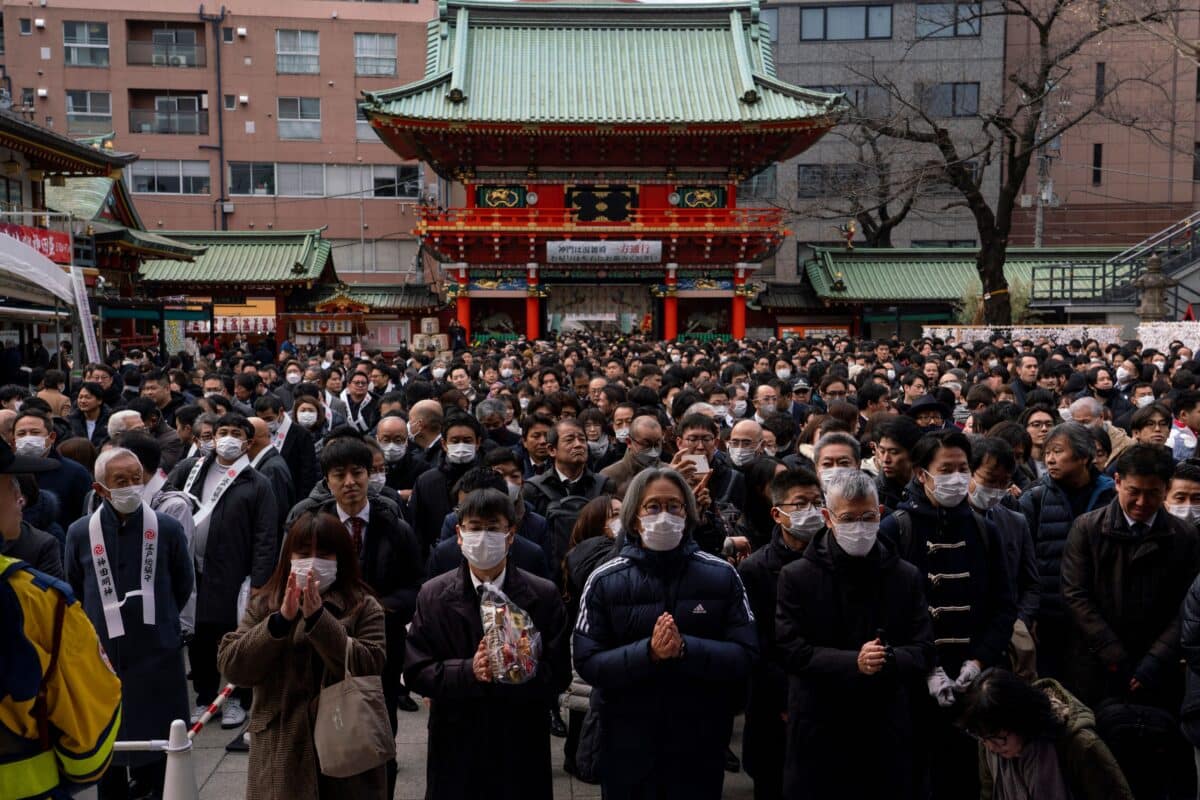Wages hold key to Japan economy in 2025

People visit Kanda Myojin Shrine to offer New Year prayers on the first business day of the year in Tokyo on January 6, 2025. (Photo by Kazuhiro NOGI / STR / AFP)
Tokyo — Whether Japanese employers will raise wages in 2025 faster than the previous year holds key to the economy’s ability to put itself on a domestic demand-led sustainable growth path this year.
Wages need to grow faster than inflation to boost personal consumption, a key engine of economic growth that has been weak because of higher prices.
“It’s hard for me to live on my pension if prices continue to rise,” a housewife in her 70s said late last month in the popular Ameyoko shopping street in Tokyo, which was crowded with people purchasing ingredients for New Year’s dishes.
The average price of the country’s traditional “osechi” New Year’s cuisine for 2025 was 27,826 yen, an increase of as much as 10.5 percent from three years before, according to research firm Teikoku Databank Ltd.
Japan’s core inflation, which excludes volatile fresh food prices, exceeded 2 percent for the 32nd consecutive month in November, when rice prices surged 63.6 percent from a year before, the biggest-ever increase, because of the lingering effect of shortages in the summer.
Article continues after this advertisementJapanese companies raised pay by 5.1 percent on average in last year’s “shunto” spring wage talks with labor unions, the highest in 33 years, according to the Japanese Trade Union Confederation.
Article continues after this advertisementHowever, inflation continued to grow faster than wages. Inflation-adjusted real wages posted year-on-year growth in June and July 2024, but sagged again.
Households have become thriftier. “The number of items purchased per shopper has not recovered,” an official at the Japan Chain Stores Association said.
Meiji Yasuda Research Institute Inc. estimates a 5.0 percent wage increase for this year’s shunto talks. “Unless large companies raise wages at a faster pace, real wage growth will remain sluggish,” fellow chief economist Yuichi Kodama said.
U.S. President-elect Donald Trump’s proposed tariffs also pose a downside risk to the Japanese economy.
If Trump actually imposes or raises tariffs, and China, Canada and Mexico retaliate with their own duties, overseas economies will slow further, pushing down Japan’s real gross domestic product by up to 1.4 pct, Daiwa Institute of Research Ltd. said.














